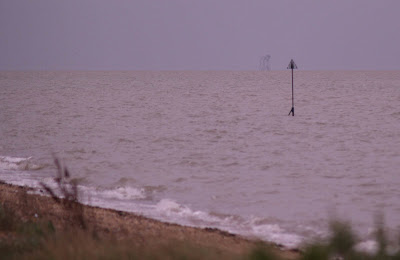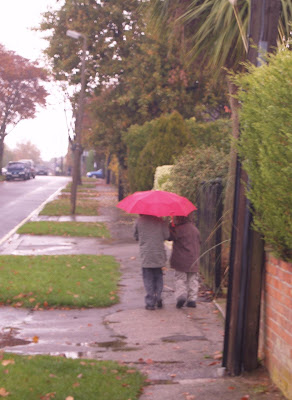Whilst I have said this in various fora before, I don’t think I have expressed it simply on this blog.
There is a difference – indeed, an ultimate incompatibility – between a Christian perspective and a Green perspective.
I define a Green perspective here as being concerned with preserving the ecological integrity of the planet as an end in itself.
So an analysis of, say, the pollution flowing into a river which kills the fish is, from such a Green perspective, simply a case of saying ‘the river is being harmed’ – and that is sufficient for the original action of pollution to be condemned. To harm the planet is sinful as such.
In response to this, the Green perspective can pursue some balance of technological, limited fixing (eg changing emission limits), or, more profoundly, disengaging or eliminating the industrial practices as a whole. This is the realo/fundi division in Green thought.
The Christian perspective is different. In particular I don’t believe that a Christian perspective can see the environment as an end in itself. To say ‘the river is being harmed’ cannot be the final item in a theological analysis.
In Scripture, disorder in the environment, in the created world, is correlated with human sin. See, for example, Hosea 4. It is because of human sin that the environment suffers. So the analysis moves from ‘the environment is suffering’ to a consideration of the forms of the sin which led to that suffering. The Christian seeks the elimination of the sin, with a glad consequence of restoring environmental health.
So far, this is compatible with the deep green perspective, and this is where I have tended to situate my own thinking. However, it is becoming clearer to me that there remains a tension between the two perspectives.
Firstly, the Christian view sees the creation as held in place by God and, to a very large extent, does not consider humanity to have the capacity to “destroy the earth”. Consequently the degree of fear that a Christian can have for ‘the future of the planet’ can never match that of a Green. This applies especially, it seems to me, with regard to questions of global warming. The more I study the matter the more I become aware of the quasi-religious nature of much of the debate and, in particular, the conscious maximising of a sense of fear.
More important than this, however, is that the criteria for decision making between the Christian and the Green eventually diverge. The Christian is finally concerned with human flourishing; the Green is finally concerned with the health of the planet.
Clearly humans cannot flourish without the planet(!) but equally clearly there are a number of different ways in which the planet can more-or-less flourish with widely differing consequences for humanity. Consider, for example, the consequences of an immediate world-wide ban on the use of fossil-fuels.
There are many ways in which the Christian and Green perspectives overlap, and there is certainly a great deal of common ground in terms of criticising contemporary Western society. I have no dispute with the fundamental Club of Rome analysis that posits limits to growth; that economic growth is itself an idol that needs to be dethroned. Yet the Christian should not be misled by this into forgetting the distinctives of their own perspective.
What I am saying is: it is possible for “nature” (or: “the planet”) to turn into an idol, with inevitable consequences.
Let us be human.







